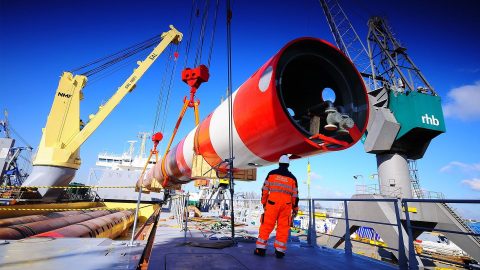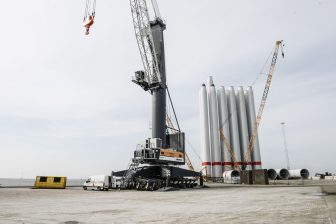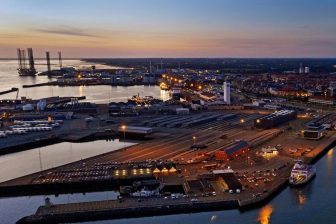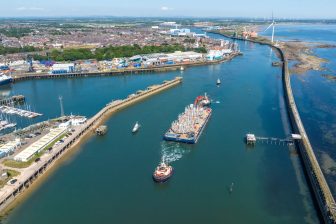
Containers and breakbulk drag Port of Rotterdam throughput down
Breakbulk throughput in the Port of Rotterdam dipped significantly in the first three months of the year, mainly due to the fact that container carriers are dipping back into the sector.
According to the latest throughput figures by the port, general cargo fell by 20.9 per cent to 1.4 million tonnes in the first three months of the year. Lower container rates have cause the cargo to shift back to the container segment.
Additionally, RoRo traffic at the port dipped by 2.2 per cent to 6.6 million tonnes when compared to the first three months of last year. This was due to lower demand from the UK due to a moderately performing economy.
Combined, RoRo and general cargo throughput slipped 6 per cent to 7.9 million tonnes in the period under review.
In the first quarter of 2023, 1.5 per cent less freight passed through the port of Rotterdam than in the same period last year. In total, 111.7 million tonnes were handled compared with 113.4 million tonnes in the same period in 2022.
The fall mainly concerned the throughput of containers and freight in the breakbulk segment (Roll-on/Roll-off and other general cargo). Throughput in the mineral oil products, crude oil, LNG, iron ore & scrap, agribulk and coal segments increased.
Allard Castelein, CEO of the Port of Rotterdam Authority, said, ‘As expected, the year 2023 started with a slight decline in throughput. Especially in the container segment, we faced a decline in volumes due to high inflation and a weakening economy. Results in the other segments mainly show growth and confirm that dependence on Russian energy flows has been further reduced in line with the sanctions. For the remainder of the year, we expect a limited decline in throughput volumes due to the uncertainties posed by the current geopolitical situation and high inflation.’
You just read one of our premium articles free of charge
Register now to keep reading premium articles.




